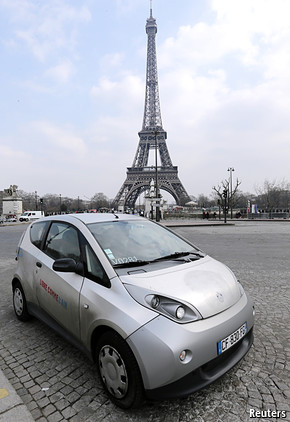With the concern over noise and air pollution rising and with governments forcing manufactures to reduce carbon dioxide emissions, there has been a rise in demand for electric cars with people seeking for a more sustainable way of transportation. Groupe Bollore has recently taken the European electric car market by storm through collaborating with Renault to produce Bollore’s existing electric car Bluecar. Due to intense competition from Tesla, a ten-year old Californian company producing electric cars, Bollores management have been trying to devise strategies in order to push Bluecar’s brand name forward.
Bollore markets its cars based on its unique selling point, the use of lithium – metal – polymer batteries, which the company itself claims are more powerful than the lithium-ion ones used in most electric cars. Over the past decade the company itself has spent at least 1.7 billion dollars on battery development alone. Having a unique selling point like this could give Bollore a competitive advantage. However, electric cars are still part of the niche market, and although in 2013 sales have been going up in rich countries, electrics and hybrids only account for a tiny fraction of car sales. The only way for Bollore to expand its customer base is to raise awareness among consumers the benefits of owning an electric car.

Bollore’s Bluecar
Works Cited

